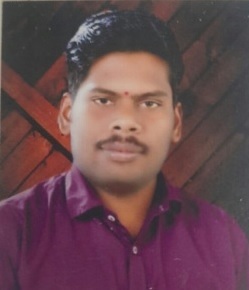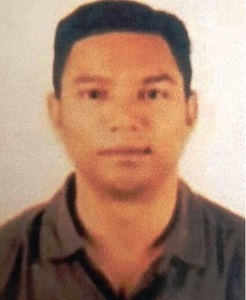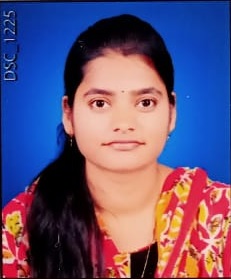MECHANICAL ENGINEERING DEPARTMENT
VISION
To create opportunities for rural students to become able engineers and technocrats through continual excellence in engineering education.
MISSION
Our mission is to create self-disciplined, physically fit, mentally robust and morally strong engineers and technocrats with high degree of integrity and sense of purpose who are capable to meet challenges of ever advancing technology for the benefit of mankind and nature. We, the management, the faculty and staff, therefore promise to strive hard and commit ourselves to achieve this objective through a continuous process of learning and appreciation of needs of time.

PROF. NARESH G. METANGE
BE, M.E. (HEAT POWER)HOD
Welcome to the Department of Mechanical Engineering at STC, Shegaon. We started our journey in the year of 2011. In today’s fast-changing world, the ever-growing challenges of limited resources, rapid climate changes and preservation of environment demand a new generation of mechanical engineers cultivated in the necessary skills and innovative spirit to meet them. Over the years the department has grown strongly. We work with the motto “the guanine effort is the only key to the success”. The department produces Mechanical Engineers with high academic excellence and practical, industrial expertise. At the Department of Mechanical Engineering, we are committed to achieving excellence in training not only competent manpower for the profession, but in nurturing engineer-leaders with the ingenuity and drive to provide innovative and bold solutions to these global challenges. Our department looks forward to contributing to solving the technological challenges of the society with active participation from all sections of the society.

Prof. Ananta Mahale
BE, ME(P)-

Prof. Ankush Bhalekar
BE, ME-

Prof. Ritesh Kumar Gajbe
BE, ME-

Prof. Nikita Ingole
BE-
PO'S
PO1:
Engineering knowledge: Apply the knowledge of mathematics, science, engineering fundamentals, and an engineering specialization to the solution of complex engineering problems.
PO2:
Problem analysis: Identify, formulate, review research literature, and analyze complex engineering problems reaching substantiated conclusions using first principles of mathematics, natural sciences, and engineering sciences.
PO3:
Design/development of solutions: Design solutions for complex engineering problems and design system components or processes that meet the specified needs with appropriate consideration for the public health and safety, and the cultural, societal, and environmental considerations.
PO4:
Conduct investigations of complex problems: Use research-based knowledge and research methods including design of experiments, analysis and interpretation of data, and synthesis of the information to provide valid conclusions.
PO5:
Modern tool usage: Create, select, and apply appropriate techniques, resources, and modern engineering and IT tools including prediction and modeling to complex engineering activities with an understanding of the limitations.
PO6:
The engineer and society: Apply reasoning informed by the contextual knowledge to assess societal, health, safety, legal and cultural issues and the consequent responsibilities relevant to the professional engineering practice.
PO7:
Environment and sustainability: Understand the impact of the professional engineering solutions in societal and environmental contexts, and demonstrate the knowledge of, and need for sustainable development.
PO8:
Ethics: Apply ethical principles and commit to professional ethics and responsibilities and norms of the engineering practice.
PO9:
Individual and team work: Function effectively as an individual, and as a member or leader in diverse teams, and in multidisciplinary settings.
PO10:
Communication: Communicate effectively on complex engineering activities with the engineering community and with society at large, such as, being able to comprehend and write effective reports and design documentation, make effective presentations, and give and receive clear instructions.
PO11:
Project management and finance: Demonstrate knowledge and understanding of the engineering and management principles and apply these to one’s own work, as a member and leader in a team, to manage projects and in multidisciplinary environments.
PO12:
Life-long learning: Recognize the need for, and have the preparation and ability to engage in independent and life-long learning in the broadest context of technological change.
PSO'S:
A graduate of the Mechanical Engineering will demonstrate:
1. PSO1:
Graduates will be familiar with Modeling and analysis software tools to analyze mechanical engineering problems and clearly understand the value of lifelong learning to update knowledge of modern software tools.
2. PSO2:
Graduate will be able to apply contextual knowledge to assess societal, health, Safety, legal and cultural issues as a professional and ethical responsibility.
Laboratory Details
| Sr No | Name of Laboratory | Room No. |
|---|---|---|
| 1 | IC Engine & Measurement System Lab | CG-01 |
| 2 | Energy Conversion & NES Lab | CG-02 |
| 3 | RAC & Heat Transfer Lab | CG-03 |
| 4 | Theory of Machine Lab | CG-12 |
| 5 | Production Technology Lab | CF-02 |
| 6 | Fluid Power Lab | W2-04 |
| 7 | Manufacturing Process Lab | W2-01 |
